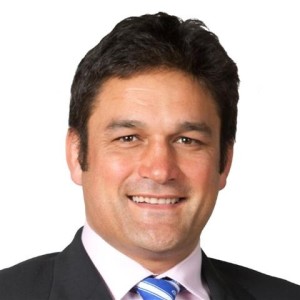
Taine Randell
Last week we reached the one year landmark before next year’s World Cup.
The All Blacks’ run since their breakthrough success on home soil has been nothing short of extraordinary. They’ve lost only one game in that time and over the last two years alone forged a 21-test unbeaten run.
Twelve months is a long time in rugby. Just look at the turnaround of the Highlanders this season. So much can happen in that time. Predicting what will happen is almost impossible, but here goes.
Sunday News
Richie McCaw is not the physical player he was in 2010/11. Those were his best years. It is unfair to expect him to be as good as he was then. That’s not to say his experience and impact is not at the same level now.
Dan Carter, while there’s no doubting his ability, we don’t need him as much as McCaw. We didn’t need Carter in 2011. Missing him, with the likes of Aaron Cruden and Beauden Barrett now established, is minimal.
It is not just about one or two people, though. The real issue is going to be around Conrad Smith, Ma’a Nonu, Kieran Read and Tony Woodcock.
Those guys have been the core of the All Blacks for the last five years and will be on the wrong side of 30. In rugby years they will be almost geriatric. We are in unprecedented territory here.
Steve Hansen and his selections have, however, built players around that core who have helped take the All Blacks to a new level from where they were in 2011.
It is hard to imagine the team without Brodie Retallick, Owen Franks, Julian Savea and Aaron Smith.
Of any player since 2011, Smith has had the most impact, because of the way he has changed the game-plan. From the more static Piri Weepu and combative Jimmy Cowan, you’ve now got a guy who has changed the way they play through his speed and passing game.
While there are a number of experienced, ageing players, they’ve added new players – more than any other World Cup-winning team. Have we got enough to keep developing through to next year? Or have we shown our hand? That remains to be seen.
The biggest threat to the All Blacks is the draw. We have another weak pool with Argentina the only genuine challenge.
Australia, England and Wales have a very tough draw with one of those team having to be eliminated before the quarterfinals. Then there’s the unknown of who we will meet in the knockout stages.
The strength of this All Blacks team is being able to maintain their level of performance. France and England are capable of turning it on now and then but don’t have the same consistency. In 1999 and 2007 we caught France on one of those days.
England are building well – a lot of people are picking them – but the problem I see is they will also be picking themselves as the surprise package. Mentally they will get ahead of themselves and not be there at the business end.
When it comes to the crunch I expect France, South Africa and maybe Australia to be there with us.
I expect the Springboks to be our biggest challenges to go back-to-back. If the All Blacks get beaten in a semifinal, whoever gets through won’t win the final as it will take so much out of them.
The Boks’ style suits World Cups. Conservative tactics have traditionally won these tournaments, as pressure does funny things.
Who would have thought after walloping France, who also lost to Tonga, in the group stages in 2011, we would only beat Les Bleus by one-point (8-7) in the final.
No other team builds such pressure like the Boks.
The All Blacks play the high-risk, highly skilled, game better than anyone else but we don’t do low percentage as well as the Boks or English. It is no coincidence those teams have very good World Cup records.
Right now we couldn’t be better placed.
We’ve bettered our game every year but do we have something else to step it up further when it matters most next year?
That’s my big question.